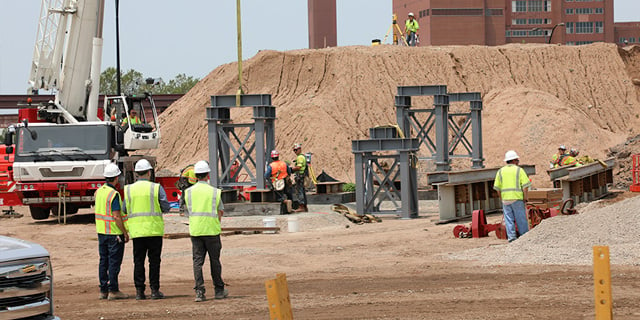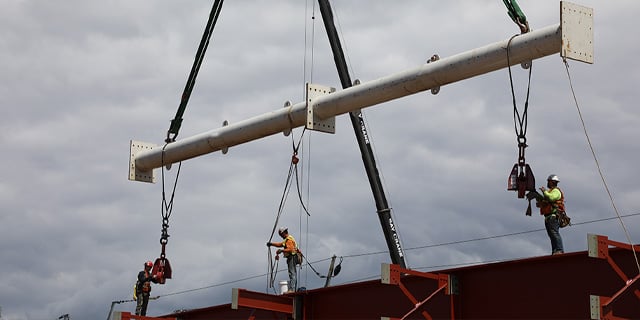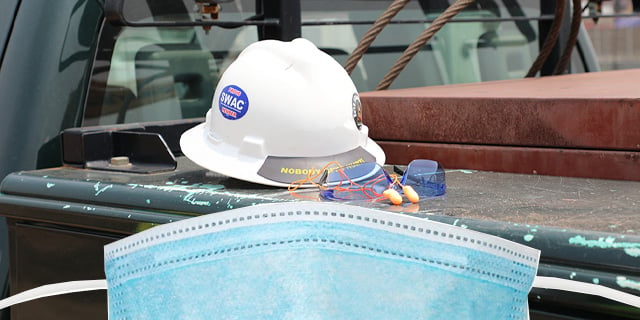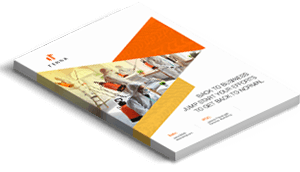
Getting Back to Business
While many states in the US are still in the throes of COVID-19, some are reopening and many more are making plans in preparation of reopening. Contractors are also looking at what they will need to do to return to work and what the new “normal” will be. We have been researching some of the expected challenges your business and employees may face and have put together some common ones to help you prepare.

People
People are the backbones of your operations. Understanding and preparing for their needs should be your first priority.
Schools
Many schools are remaining virtual for the remainder of the school year. This will inevitably impact the ability to return to the office for many parents and caretakers.
Daycare
While some of these facilities are open, depending on your location, many of them have not opened. Like schools, this will create an impact on returning to work—especially for those who depend on this service.
Transportation
Your people may rely on public transportation to get to work. If transportation is not operating normally, this will impact your staffs’ ability to get to work and/or get to work on time.
Health and Wellbeing
This is going to be on the mind of everyone returning to work. Some people may have underlying medical conditions that will make them nervous about potential exposure. While others will want to know what steps are being taken to ensure their wellbeing. Communicating out to employees to stay home when they are sick will be very important as will making sure they feel comfortable doing so.

Projects
Across the US, there have been complete shutdowns of construction work, changes to what is considered “essential” construction, halts put on projects by the client, and cancellations altogether. As you transition your business and crews, there are some areas to consider.
Clients
If your work has been impacted, contact your clients to let them know when your crews will be returning and provide them with information like timelines, resources, or additional requirements about the project so that they know how your schedule has been impacted and what your company is doing to keep things moving forward and on track. Due to the requirements for additional PPE, you may need to initiate a change order on the project. Let your clients know that this is happening and what steps your taking to ensure a safe jobsite.
Examine the force majeure clauses in your contracts to see if they include pandemics and/or language like “acts of God” or “beyond a contractor’s control” is present to avoid any penalties and to extend the project deadline.
Subcontractors
If you have subcontractors, meet with them to review the project schedule and see how they will be handling the return to work. Give them your post COVID-19 plan so that everyone returning will be on the same page and able to maintain the project schedule.
Materials
With closures of non-essential businesses, many material suppliers have closed during the pandemic, which has created challenges for many contractors. Take inventory of materials in your yard and assess what will be needed for upcoming projects, or projects that are picking back up. Contact your materials suppliers to get information on when they will be open and how quickly you can get what you need from each of them.
Supplies
PPE availability has caused delays on projects or has been the cause to shut down work. Additional gear and supplies, like hand sanitizer will be required. Make sure that your team has an idea of what is needed in the field and office in order to maintain levels and keep people safe, and work with the supplier on keeping these items available and in stock.
Coverages
You may have certain coverages that can also protect you or could save you some money. It would be worth reviewing your contracts to see if you have environmental coverage, management liability, and/or cybersecurity and liability coverage. Based on our readings, it looks like it could provide some protection from costs down the road.

Safety
CDC Guidelines
The CDC issued guidelines for COVID-19. These guidelines require prescreening employees for risk, such as taking temperature and monitoring the employees for symptoms prior to starting work. The CDC guidelines require a mask, and social distancing. In addition, there is a requirement to disinfect and clean workspaces, which includes shared equipment. Based on our conversations with our customers, this can easily add up to 30 minutes to a workday.
OSHA Guidance
OSHA has provided guidance on COVID-19 and as a return to “normal” begins an update to the guidance will most likely be provided. Masks, social distancing, and hand sanitizer/hand washing stations are all currently required for essential businesses that are open and will most likely remain a requirement when everyone goes back to business. The demand for these required items will mean that you will need to continue to have them available for your crews.
The guidance issued by OSHA and CDC should be reviewed an adhered to.
Futureproofing
Businesses globally were not ready to address many of the challenges covered above, nor were they ready to accommodate for remote work. Being caught off guard has caused many to reevaluate their systems, technology and plans. Do you have the right technology to manage your projects, equipment, remote work and communication? Now is an excellent time to evaluate if your business for these areas to insulate your business.

As you can see, there are several areas that you need to plan for. We have put together this guide to help you prepare for the road ahead with COVID-19 and jump start your efforts in returning to normal business.
About Kristen Olson
Kristen brings experience her diverse experience with The Conti Group to Tenna. From her involvement with essentially every facet of the organization, to start-up initiatives within Conti, with specific organizational change projects to over 17 years focused in Human Resources, she has firsthand knowledge and understanding of the industry and contractors Tenna serves. Her creative mind and non-traditional background results in innovative solutions to the programs, procedures, and standard human resource responsibilities as she works with the various departments within Tenna while always focusing on Tenna’s current and future customers.
